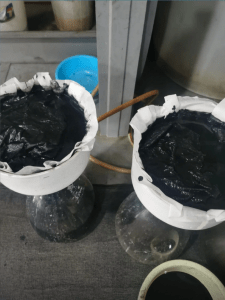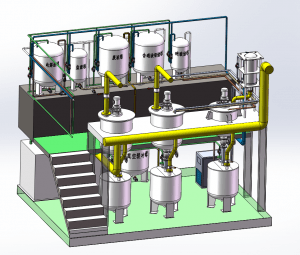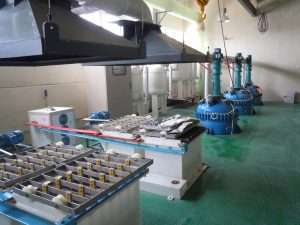Call us now:
Rhodium is a precious metal that is primarily used in catalytic converters, electronic components, and jewelry. It is one of the rarest and most expensive metals in the world. If you are interested in rhodium recovery and refining, here are some key points to consider:
Rhodium Sources: Rhodium can be obtained from various sources, including used catalytic converters, spent industrial catalysts, and recycled electronic components.
Rhodium Recovery: The process of rhodium recovery typically involves the following steps:
a. Collection and Preparation: Collect the rhodium-containing materials and remove any impurities or non-metallic components.
b. Dissolution: Dissolve the rhodium-bearing material in an appropriate chemical solution to extract rhodium into a soluble form.
c. Separation: Use various separation techniques, such as precipitation, solvent extraction, or ion exchange, to isolate rhodium from other metals and impurities.
d. Precipitation and Filtration: Precipitate the rhodium from the solution by adding a suitable reducing agent. Filter the precipitate to separate it from the remaining solution.
e. Calcination: Heat the filtered precipitate to convert it into rhodium oxide.
f. Reduction: Reduce the rhodium oxide using a reducing agent, such as hydrogen gas, to obtain metallic rhodium.
g. Refining: Further purify the metallic rhodium through processes like zone refining or electrorefining to achieve a high level of purity.
Refining Techniques: Refining rhodium involves removing impurities and other metals to obtain a pure rhodium product. The refining techniques can include:
a. Zone Refining: This method involves passing a molten rhodium sample through a temperature gradient, causing impurities to migrate and concentrate in one section, which can then be removed.
b. Electrorefining: Electrorefining involves using an electrolytic cell where the impure rhodium acts as the anode, and a pure rhodium or titanium cathode is used. As an electric current passes through the cell, impurities are transferred to the cathode, leaving behind purified rhodium.
Safety Considerations: When working with rhodium or any other precious metal, it is important to prioritize safety. Follow proper handling procedures, use appropriate protective equipment, and work in a well-ventilated area. Additionally, be aware of any environmental regulations regarding the disposal of chemicals used in the recovery and refining process.
Professional Assistance: Rhodium recovery and refining can be complex processes that require specialized knowledge and equipment. It is advisable to seek the assistance of professionals or companies experienced in precious metal refining to ensure the best results and safety compliance.
Remember that rhodium recovery and refining may have legal and regulatory considerations depending on your location. It is essential to familiarize yourself with any applicable laws and obtain the necessary permits or licenses before engaging in these activities.
Certainly! Here are some additional points to consider regarding rhodium recovery and refining:
Economic Considerations: Rhodium refining can be economically viable due to the high value of the metal. However, it is essential to assess the overall cost-benefit analysis, taking into account factors such as the quantity and quality of the rhodium-bearing material, the cost of chemicals and equipment, and the market price of rhodium.
Environmental Impact: The recovery and refining of rhodium can involve the use of chemicals and generate waste products. It is crucial to adopt environmentally friendly practices and comply with regulations for waste disposal and emissions. Consider implementing proper waste management techniques and exploring recycling options for byproducts or unused materials.
Laboratory Analysis: Before initiating the recovery and refining process, it is recommended to conduct a thorough analysis of the rhodium-bearing material. This analysis helps determine the rhodium content, as well as the presence of any impurities or other metals that may affect the refining process. Consult with a laboratory specializing in precious metal analysis for accurate results.
Scaling Up: If you plan to undertake rhodium recovery and refining on a larger scale, it is important to evaluate the scalability of the process. Consider the availability of resources, infrastructure requirements, and operational considerations necessary for handling increased volumes of material.
Market Considerations: Understanding the market for rhodium is crucial when engaging in recovery and refining efforts. Stay updated on current market trends, pricing, and demand for rhodium to ensure that your efforts are aligned with market conditions. Market fluctuations can impact the profitability of rhodium refining, so it's advisable to have a thorough understanding of the market dynamics.


